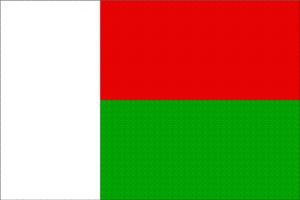Language/Plateau-malagasy/Grammar/Gender
Hi Plateau Malagasy learners! 😊
In this lesson, we will learn about the gender of nouns in Plateau Malagasy. We will look at the different ways to identify the gender of a noun and how to use it correctly in sentences.
Gender is an important part of Plateau Malagasy grammar. It affects the way words are used in sentences and can change the meaning of a sentence. In Plateau Malagasy, nouns are either masculine or feminine. There are some rules that can help you identify the gender of a noun, but there are also exceptions to these rules.
Rules for Identifying Gender
There are several rules that can help you identify the gender of a noun in Plateau Malagasy.
Rule 1: Endings
The most common way to identify the gender of a noun is by looking at the ending of the word. Nouns that end in -a are usually feminine, while nouns that end in -o are usually masculine.
For example:
| Plateau Malagasy | Pronunciation | English Translation |
|---|---|---|
| rahalahy | ra-ha-la-hy | man |
| vehivavy | ve-hi-va-vy | woman |
Rule 2: Prefixes
Another way to identify the gender of a noun is by looking at the prefix. Nouns that begin with the prefix ny- are usually feminine, while nouns that begin with the prefix za- are usually masculine.
For example:
| Plateau Malagasy | Pronunciation | English Translation |
|---|---|---|
| ny vehivavy | ny ve-hi-va-vy | the woman |
| za rahalahy | za ra-ha-la-hy | the man |
Rule 3: Exceptions
There are some exceptions to the rules above. For example, some nouns that end in -a can be masculine, and some nouns that end in -o can be feminine.
For example:
| Plateau Malagasy | Pronunciation | English Translation |
|---|---|---|
| lahy | la-hy | husband (masculine) |
| vavy | va-vy | wife (feminine) |
Using Gender in Sentences
Once you have identified the gender of a noun, you can use it correctly in sentences. The gender of a noun affects the form of the verb and the adjectives used to describe it.
For example:
| Plateau Malagasy | Pronunciation | English Translation |
|---|---|---|
| ny vehivavy mahafaly | ny ve-hi-va-vy ma-ha-fa-ly | the beautiful woman |
| za rahalahy mahafaly | za ra-ha-la-hy ma-ha-fa-ly | the handsome man |
Practice
To improve your Plateau Malagasy Grammar, you can also use the Polyglot Club website. Find native speakers and ask them any questions!
Quiz
Test your knowledge of Plateau Malagasy gender with the following quiz questions.
- What is the gender of the word lahy?
- What is the gender of the word vavy?
- What is the gender of the word ny vehivavy?
- What is the gender of the word za rahalahy?
Answers
- Masculine
- Feminine
- Feminine
- Masculine
➡ If you have any questions, please ask them in the comments section below.
➡ Feel free to edit this wiki page if you think it can be improved. 😎

